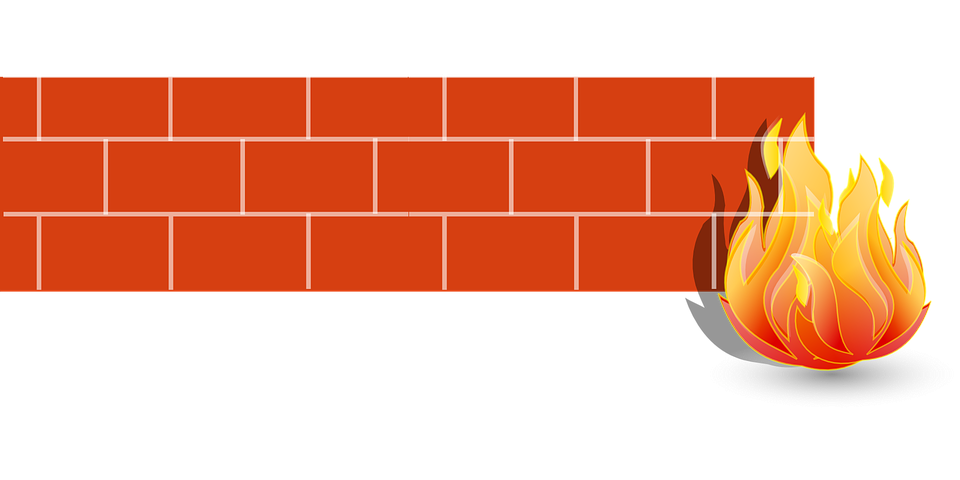What is a Stateful Firewall
A stateful firewall is a type of network firewall that keeps track of the state of active connections passing through it. It maintains a record, or state table, of the state of all connections passing through it. This includes information such as source and destination IP addresses, port numbers, and connection status (e.g., established, ongoing, or terminated).
By keeping track of the state of connections, a stateful firewall can make more informed decisions about which packets to allow or block. For example, it can ensure that incoming packets are part of an established connection initiated by an internal device, helping to prevent certain types of attacks, such as spoofing or session hijacking.
Understanding the Basics
What is a Firewall?
A firewall is a network security device or software that monitors and controls incoming and outgoing network traffic based on predetermined security rules. It serves as the first line of defense against unauthorized access and malicious activities. Read about How to Disable Firewall

Stateful vs. Stateless Firewall
While both stateful and stateless firewalls operate to protect networks, they differ in their approach. Stateless firewalls examine individual packets of data, while stateful firewalls maintain context about the state of active connections.
How Does a Stateful Firewall Work?
Packet Inspection
Stateful firewalls employ packet inspection techniques to analyze incoming and outgoing network traffic. This process involves examining various attributes of packets, such as source and destination IP addresses, ports, and protocol types. Discover about Workforce Optimization Software Eleveo
Stateful Packet Inspection (SPI)
One of the distinguishing features of stateful firewalls is their ability to perform stateful packet inspection. This method involves keeping track of the state of active network connections, allowing the firewall to make intelligent decisions based on the context of each packet.
Key Features of Stateful Firewalls
Session Tracking
Stateful firewalls maintain information about active network sessions, including connection state, sequence numbers, and session timeouts. This enables them to differentiate between legitimate and malicious traffic effectively. Learn about Minimize YouTube on iPhone
Application Layer Inspection
In addition to packet-level inspection, stateful firewalls can also perform deep packet inspection at the application layer. This advanced capability allows them to identify and block sophisticated threats hidden within application data.
Benefits of Stateful Firewalls
Enhanced Security
By monitoring the state of network connections, stateful firewalls can detect and prevent unauthorized access attempts, intrusions, and other malicious activities more effectively than traditional firewalls.
Improved Performance
Despite their advanced features, stateful firewalls are designed to optimize network performance. By intelligently filtering traffic based on connection state, they can minimize latency and ensure smooth data transmission.
Limitations of Stateful Firewalls
Inability to Handle Advanced Threats
While stateful firewalls provide robust protection against many common threats, they may struggle to detect and mitigate sophisticated attacks, such as zero-day exploits and advanced persistent threats (APTs).
Resource Consumption
Maintaining stateful inspection tables requires additional computational resources and memory, which can impact the overall performance of the firewall, particularly in high-traffic environments.
Common Use Cases
Stateful firewalls are widely used in various network environments, including:
- Corporate Networks: to safeguard sensitive data and internal resources from external threats.
- Home Networks: to protect personal devices and information from internet-based attacks and unauthorized access attempts.
Best Practices for Stateful Firewall Configuration
To maximize the effectiveness of stateful firewalls, it is essential to adhere to best practices such as:
- Regular Updates: to ensure the firewall’s software and threat intelligence databases are up-to-date.
- Access Control Policies: to define and enforce rules governing inbound and outbound traffic based on organizational security requirements.

Conclusion
In conclusion, stateful firewalls play a crucial role in modern network security by providing advanced threat detection and access control capabilities. By leveraging stateful packet inspection and other sophisticated techniques, they help organizations protect their networks from a wide range of cyber threats.
FAQs
- Can a stateful firewall protect against all types of cyber threats?
- Stateful firewalls are effective against many common threats, but they may struggle to detect and mitigate advanced attacks such as zero-day exploits.
- What is the difference between stateful and stateless firewalls?
- Stateless firewalls examine individual packets, while stateful firewalls maintain context about the state of active connections, allowing for more intelligent decision-making.
- Are stateful firewalls suitable for home network security?
- Yes, stateful firewalls are an excellent choice for home networks, providing protection against internet-based threats and unauthorized access attempts.
- How often should I update my stateful firewall’s software?
- It is recommended to update your stateful firewall’s software and threat intelligence databases regularly to ensure optimal security against emerging threats.
- Can stateful firewalls impact network performance?
- While stateful firewalls are designed to minimize performance impact, maintaining stateful inspection tables may require additional computational resources, which could affect performance in high-traffic environments.
